Precision carbon steel pipes are an important material widely used in industry, and their manufacturing processes and applications have attracted considerable attention.
1. Manufacturing Process of Precision Carbon Steel Pipes:
The manufacturing process of precision carbon steel pipes is complex and typically involves the following steps:
- Material Selection: Select high-quality carbon steel to ensure that the pipe's mechanical properties and chemical composition meet the required specifications.
- Hot Rolling or Cold Rolling: The selected carbon steel is hot-rolled or cold-rolled to achieve the desired shape and size.
- Cold Drawing: The rolled steel billet is cold-drawn to achieve the required wall thickness and outer diameter accuracy.
- Pickling or Phosphating: Surface treatment processes such as pickling or phosphating are used to improve the surface quality and corrosion resistance of the steel pipe.
- Polishing: Polishing the steel pipe to improve surface smoothness and flatness.
2. Characteristics of Precision Carbon Steel Pipes:
Precision carbon steel pipes have the following notable characteristics:
- High Precision: Precision carbon steel pipes have high dimensional accuracy, meeting the machining requirements of a variety of complex workpieces.
- Excellent Mechanical Properties: Made from high-quality carbon steel, precision carbon steel pipes exhibit excellent mechanical properties, including strength, toughness, and wear resistance.
- Good Machinability: Precision carbon steel pipes are easy to machine and weld, meeting various process requirements.
- Strong Corrosion Resistance: Surface-treated precision carbon steel pipes exhibit excellent corrosion resistance, making them suitable for use in a variety of harsh environments.
3. Applications of Precision Carbon Steel Pipes:
Precision carbon steel pipes are widely used in various fields, including:
- Machinery Manufacturing: Precision carbon steel pipes are commonly used in the manufacture of mechanical parts such as bearings, gears, and shafts.
- Automotive Industry: In automotive manufacturing, precision carbon steel pipes are used in the manufacture of key components such as engines and transmission systems. - Oil and Gas Industry: Precision carbon steel pipes, used as oil and gas pipes, play a vital role in oil extraction and natural gas transportation.
- Aerospace Industry: In the aerospace sector, precision carbon steel pipes are widely used in the manufacture of aircraft structural components and engine parts.
As an important industrial material, precision carbon steel pipes have a wide range of manufacturing processes and applications. A deeper understanding of the characteristics and applications of precision carbon steel pipes can better leverage their role in industrial production and promote the development and progress of related industries.
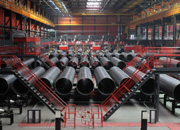 Threeway Steel is known as a professional supplier engaged in manufacturing and distributing a wide range of steel pipe, and our headquarter located the central part of China – Hunan and six associated factories throughout China.
Threeway Steel is known as a professional supplier engaged in manufacturing and distributing a wide range of steel pipe, and our headquarter located the central part of China – Hunan and six associated factories throughout China.
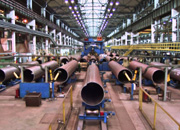 Threeway Steel is known as a professional supplier engaged in designing, manufacturing and distribution of a wide range of steel products with the headquarter located the central part of China – Hunan and six associated factories throughout China.
Threeway Steel is known as a professional supplier engaged in designing, manufacturing and distribution of a wide range of steel products with the headquarter located the central part of China – Hunan and six associated factories throughout China.
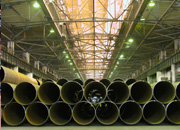 Threeway Steel is known as a professional supplier engaged in designing, manufacturing and distribution of a wide range of steel products with the headquarter located the central part of China – Hunan and six associated factories throughout China.
Threeway Steel is known as a professional supplier engaged in designing, manufacturing and distribution of a wide range of steel products with the headquarter located the central part of China – Hunan and six associated factories throughout China.
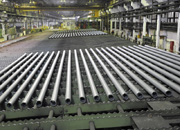 Threeway Steel is known as a professional supplier engaged in designing, manufacturing and distribution of a wide range of steel products with the headquarter located the central part of China – Hunan and six associated factories throughout China.
Threeway Steel is known as a professional supplier engaged in designing, manufacturing and distribution of a wide range of steel products with the headquarter located the central part of China – Hunan and six associated factories throughout China.
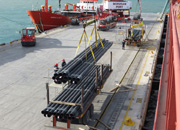 Threeway Steel is known as a professional supplier engaged in designing, manufacturing and distribution of a wide range of steel products with the headquarter located the central part of China – Hunan and six associated factories throughout China.
Threeway Steel is known as a professional supplier engaged in designing, manufacturing and distribution of a wide range of steel products with the headquarter located the central part of China – Hunan and six associated factories throughout China.

